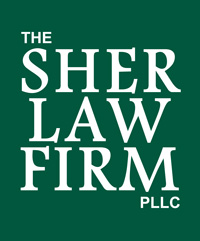Overtime Laws and Wage Rights
Is Your Employer Paying You Overtime?

Employees need to know their Overtime Laws and Wage Rights. Even if you’re paid a Salary, earn Commission, or are in Management, if you work Overtime your employer may be required to pay you overtime wages. Many companies illegally classify employees as “exempt” or misclassify employees as Independent Contractors to avoid paying overtime wages.
The Department of Labor estimates that 80 percent of employers are not in compliance with applicable wage and hour laws. The retail sector has been targeted in many of the largest suits – Wal-Mart alone has been named in over 80 wage-and-hour class action civil suits, and has agreed to settlements in the hundreds of millions of dollars – but no sector is immune. Even companies primarily employing salaried professionals have been subject to large class action suits.
There are NO ATTORNEYS FEES unless you recover.
There are no attorney’s fees unless you recover, in which case those charges are paid from your share of the recovery. If there is no recovery, you will not be responsible for any attorney’s fees, court costs or litigation expenses.
It is ILLEGAL for employers to fire employees for making overtime claims.
Under federal law the employer can be punished with criminal penalties. The Fair Labor Standards Act prohibits employers from retaliating against any current or former employee who elects to participate in any proceeding asserting their rights provided under the law.
You DO NOT need to prove you worked overtime.
You do not need to have proof of the hours you worked. If the employer does not keep accurate time records, most courts allow the employee to make a good faith estimate of overtime hours. So even if you did not keep your pay records, or did not always clock in or out, the court will generally accept a good faith estimate of your hours.
The Fair Labor Standards Act (FLSA)
The Fair Labor Standards Act (FLSA) establishes minimum wage, overtime pay, record keeping, and child labor standards affecting full-time and part-time workers in the private sector and in Federal, State, and local governments. Covered nonexempt workers are entitled to a minimum wage of not less $7.25 per hour effective July 24, 2009. Overtime pay at a rate of not less than one and one-half times their regular rates of pay is required after 40 hours of work in a workweek.
Federal Minimum Wage: $7.25 per hour beginning July 24, 2009
Overtime Pay: At least 1.5 times an employee’s regular rate of pay for all hours worked over 40 in a workweek.
Youth Employment: An employee must be at least 16 years old to work in most non-farm jobs and at least 18 to work in non-farm jobs declared hazardous by the Secretary of Labor.
Youths 14 and 15 years old may work outside school hours in various non-manufacturing, non-mining, non-hazardous jobs under the following conditions:
No more than 3 hours on a school day or 18 hours in a school week; and 8 hours on a non-school day or 40 hours in a non-school week.
Also, work may not begin before 7 a.m. or end after 7 p.m., except from June 1 through Labor Day, when evening hours are extended to 9 p.m. Different rules apply in agricultural employment.
Tip Credit: Employers of “tipped employees” must pay a cash wage of at least $2.13 per hour if they claim a tip credit against their minimum wage obligation. If an employee’s tips combined with the employer’s cash wage of at least $2.13 per hour do not equal the minimum hourly wage, the employer must make up the difference. Certain other conditions must also be met.
Enforcement: The Department of Labor may recover back wages either administratively or through court action, for the employees that have been underpaid in violation of the law. Violations may result in civil or criminal action.
Civil money penalties of up to $11,000 per violation may be assessed against employers who violate the youth employment provisions of the law and up to $1,100 per violation against employers who willfully or repeatedly violate the minimum wage or overtime pay provisions. This law prohibits discriminating against or discharging workers who file a complaint or participate in any proceedings under the Act.
Additional Information:
- Certain occupations and establishments are exempt from the minimum wage and/or overtime pay provisions.
- Some state laws provide greater employee protections; employers must comply with both.
- Employees under 20 years of age may be paid $4.25 per hour during their first 90 consecutive calendar days of employment with an employer.
Certain full-time students, student learners, apprentices, and workers with disabilities may be paid less than the minimum wage under special certificates issued by the Department of Labor.
Overtime Pay
FSLA Wage Standards
Recordkeeping, Enforcement & Recovery of Back Wages
Wage & Hour FAQs
Based in Houston, The Sher Law Firm, PLLC, serves the needs of clients in complex environmental, oil and gas, personal injury and commercial litigation throughout Texas, including greater Houston, Dallas-Fort Worth, San Antonio, Corpus Christi, El Paso, the Rio Grande Valley, the Texas Panhandle, Midland/Odessa and Lubbock. We also handle litigation in other states through association with local counsel in California, Colorado, Illinois, New Mexico, Oklahoma and Pennsylvania.

